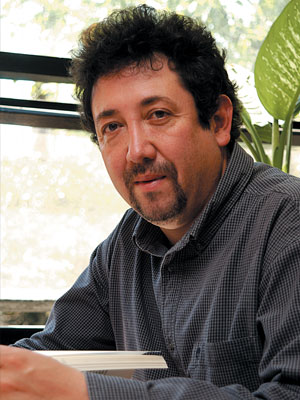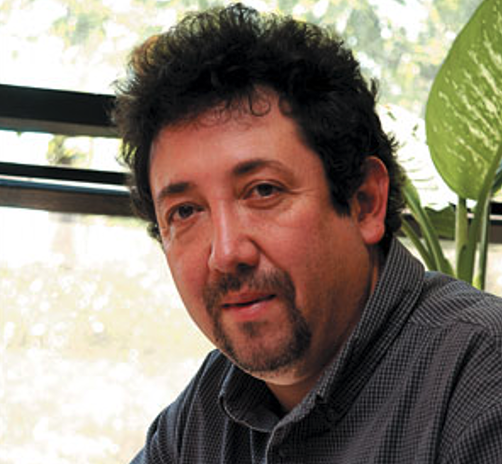
SHORT
BIOGRAPHY
Luis Miguel Galindo Paliza holds a BA in Economics from the National Autonomous University of Mexico (UNAM), an MA in Economics from CIDE, an MA in Quantitative Methods for Development from Warwick University and a PhD in Economics from the University of Newcastle Upon Tyne. He is currently a lecturer in the graduate program in Economics at the Faculty of Economics at the UNAM. Previously, Luis Miguel Galindo was head of the Climate Change Unit and regional advisor at ECLAC. He has worked for several Central Banks in Latin America and the Caribbean as well as in international organizations, such as the United Nations, Inter-American Development Bank and World Bank. His research topics include the economics of climate change, monetary and financial policy, green fiscal policy, environmental economics and environmental valuation and addiction economics.
SHORT
BIOGRAPHY
Luis Miguel Galindo Paliza holds a BA in Economics from the National Autonomous University of Mexico (UNAM), an MA in Economics from CIDE, an MA in Quantitative Methods for Development from Warwick University and a PhD in Economics from the University of Newcastle Upon Tyne. He is currently a lecturer in the graduate program in Economics at the Faculty of Economics at the UNAM. Previously, Luis Miguel Galindo was head of the Climate Change Unit and regional advisor at ECLAC. He has worked for several Central Banks in Latin America and the Caribbean as well as in international organizations, such as the United Nations, Inter-American Development Bank and World Bank. His research topics include the economics of climate change, monetary and financial policy, green fiscal policy, environmental economics and environmental valuation and addiction economics.
CONTRIBUTION TO THE PROJECT
During his stay at Extractivism.de, Luis Miguel Galindo Paliza investigates the economic and political preconditions as well as the consequences of the energy transition in Latin America, particularly for private households. He focuses mainly on demand-side factors and customers and deals in detail with the dynamics of consumption patterns. In this way, he shows the tensions between development processes and the energy transition.
RECENT PUBLICATIONS (SELECTION)
Basurto, S., L. M. Galindo, J. Ríos Mohar. (2022). “Impactos económicos potenciales del cambio climático en la ganadería: caso de México.” Problemas del Desarrollo, Vol. 54, N° 212: 27-54. VIEW PUBLICATION
Galindo, L.M., P. Reyes, F. González. (2022). “Escenarios para la transición energética a una economía carbono neutral en América Latina y el Caribe: algunos hechos estilizados.” Temas de Economía, Nueva Época, Vol. 3, N° 6: 1-35. VIEW PUBLICATION
Galindo, L.M., C.A. Francisco, K. Caballero. (2021). “Efectos demográficos en los patrones de consumo en México: un análisis con microdatos para 2018.” CIMEXUS Revista de Investigación, Vol. XVI, N° 2: 107-127. VIEW PUBLICATION
Galindo, L.M., K. Caballero, C.A. Francisco. (2021). “La demanda de electricidad residencial y el cambio climático en Argentina, Brasil, Chile y Colombia.” Revista Chilena de Economía y Sociedad, Vol. 15, N° 2: 45-64. VIEW PUBLICATION
Galindo, L.M., F. Filgueira, M. Blofield, Carlos Francisco. (2020). “The fiscal cost of the provision of basic public services, subsidies for expenditure on food and basic citizen income per household in Costa Rica, Guatemala and El Salvador during the COVID-19 Pandemic: An expenditure analysis.” Latin American Economic Review, Vol. 29: 1-27. VIEW PUBLICATION
Galindo, L.M., G. Giulio, G. Porcile. (2020). “Environmental Innovations, income distribution, international competitiveness and environmental policies: a Kaleckian growth model with a balance of payments constraint.” Structural Change and Economy Dynamics, Vol. 53: 16-25. VIEW PUBLICATION
